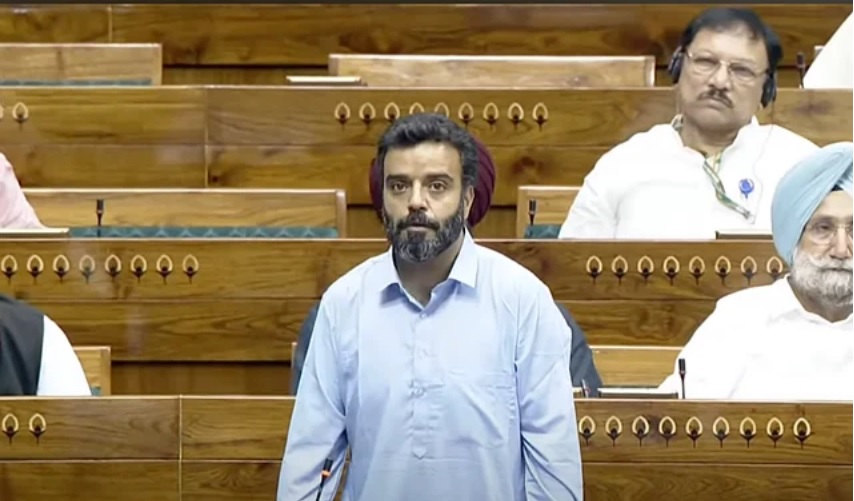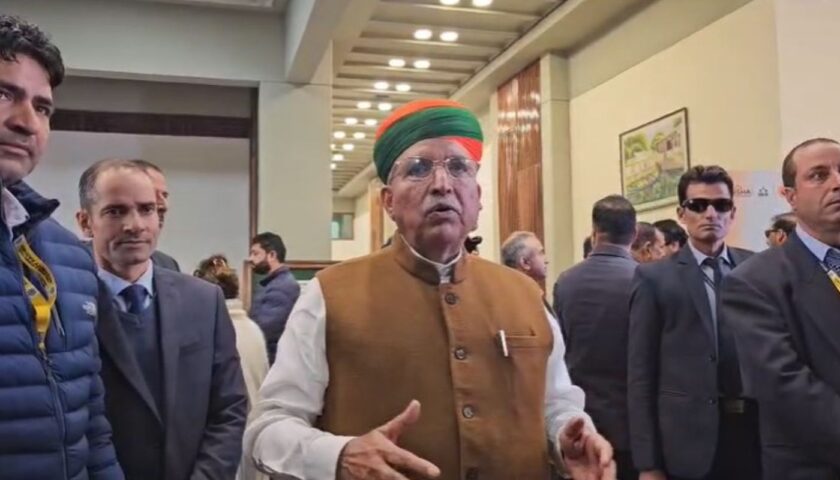Ruhullah Mehdi Slams Infrastructure Imposition in Kashmir: Forced Development or Economic Neglect?
A Debate Over Development in Kashmir – The debate over development in Jammu and Kashmir has once again taken center stage, with National Conference MP Aga Syed Ruhullah Mehdi voicing strong criticism against the central government. During a session in Parliament, Ruhullah accused the government of imposing infrastructure projects on Kashmir without considering the aspirations or immediate needs of its people. His remarks have reignited discussions about land acquisition, displacement of farmers, and the apparent neglect of regions actively seeking railway connectivity.
Unwanted Development vs. Genuine Public Demand
Ruhullah Mehdi’s statements point to a growing concern among Kashmiris—development that disregards the socio-economic realities of the region. While projects like railway expansion and new townships are being fast-tracked, they seem to come at the cost of Kashmir’s agricultural backbone. Farmers, particularly fruit growers, are facing displacement due to large-scale land acquisitions, which they claim are being carried out without proper consultation or compensation.
The MP specifically highlighted that while regions such as Rajouri, Poonch, and Kupwara have been actively demanding railway connectivity, their requests have been ignored. Instead, government projects are being implemented in areas where there is little to no public demand, leading to speculation about whether these developments are being used as a tool for socio-political control rather than economic progress.
The Impact on Kashmir’s Agricultural Economy
Agriculture and horticulture form the backbone of Kashmir’s economy, with thousands of families relying on apple orchards, saffron cultivation, and other crops for their livelihoods. According to Mehdi, the indiscriminate acquisition of land for infrastructure projects is pushing farmers into financial distress.
Key Concerns Raised by Farmers and Economists:
- Destruction of Orchards: Fruit-growing regions are being affected by railway and township projects, leading to loss of livelihood.
- Compensation Disparities: Many farmers claim they are not receiving fair compensation for their land.
- Lack of Rehabilitation Plans: There is no clear government policy on how displaced farmers will be resettled or compensated.
- Economic Displacement: Loss of agricultural land means a rise in unemployment, forcing locals to migrate in search of jobs.
Railway Connectivity: Promises vs. Reality
The demand for improved railway connectivity in Jammu and Kashmir has been longstanding, particularly in areas like Rajouri, Poonch, and Kupwara. These regions have continuously voiced their need for better transportation networks to boost trade, tourism, and connectivity with the rest of India. However, their demands have largely been ignored, even as infrastructure projects are being implemented in areas that did not ask for them.
Ruhullah Mehdi raised a critical question in Parliament: Why are these high-demand railway projects not prioritized, while forced projects are being implemented elsewhere?
He pointed out the discrepancy between government priorities and public demands, arguing that the allocation of funds and resources should be based on economic viability and social need rather than political motivations.
Democracy and Development: Who Decides?
At the heart of Ruhullah’s argument lies a fundamental question about democracy: Should development be imposed, or should it reflect the aspirations of the people?
He criticized the government for failing to adopt a consultative approach when planning large-scale projects in Jammu and Kashmir. According to him, democracy should be about addressing public needs, not about forcing infrastructure projects that benefit only a select few. The government’s approach has led to growing resentment among Kashmiris, who feel that their voices are not being heard in the decision-making process.
Political Implications of Forced Development
The imposition of infrastructure projects in Kashmir has also raised political concerns. Many believe that such projects are being used to alter the region’s socio-economic landscape in a way that benefits external interests rather than the local population.
Potential Political Motives Behind Forced Development:
- Land Acquisition for Non-Local Settlements: There is growing fear that new townships could pave the way for demographic changes in the region.
- Control Over Resources: Large-scale projects may place critical resources under central control rather than allowing local governance.
- Weakening Local Political Influence: By ignoring the demands of local leaders and communities, the central government could be attempting to diminish regional political influence.
The Government’s Silence: A Growing Concern
Despite repeated calls for transparency and accountability, the central government has yet to offer a clear response to Ruhullah Mehdi’s concerns. The absence of a structured dialogue between policymakers and the affected communities has only deepened mistrust.
If development projects continue to be imposed without public consultation, it could lead to long-term socio-economic instability in Kashmir. Infrastructure development should be for the people, by the people, rather than being dictated from afar.
Bottom-Line: A Call for Transparent, People-Centric Development
Ruhullah Mehdi’s speech in Parliament has brought to light a critical issue—who decides Kashmir’s future? Development should not come at the cost of economic displacement, environmental degradation, and social instability. The government must engage in meaningful dialogue with local stakeholders, address genuine public demands, and ensure that any infrastructure projects truly benefit the people of Jammu and Kashmir.
If the goal is economic progress, it must align with local needs, aspirations, and sustainability. Only then can development in Kashmir be seen as a force for good rather than a tool for control.




